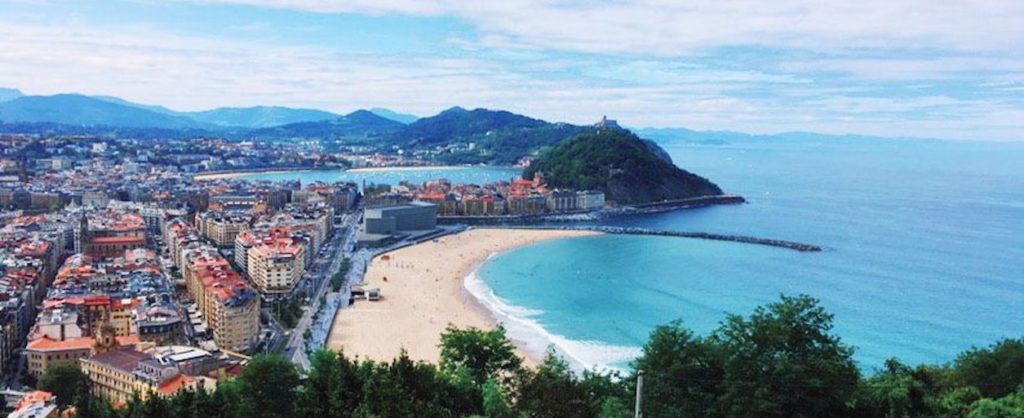If you are a foodie like I am, there is a little town in northern Spain, on the Bay of Biscay, that you will thoroughly enjoy: San Sebastián. Nestled in the mountainous Basque country close to the French border, San Sebastian enjoys a beautiful coastline as well as the picturesque Aralar Range. Apart from the beauty and charm of the region, there is also something very special about the place: its approach to food. The abundance of local produce means there is a variety of great ingredients to play with and play they do! This enables creative cooks in the region to offer a unique experience when it comes to utilising these ingredients. The food excellence of the region is encapsulated in one word: “pintxo” (pronounced [pintʃo]).
A pintxo is a small snack. It is a Basque take on the Spanish word ‘pincho’ which means ‘spike’. This is because many of the snacks have a toothpick that holds the ingredients together, turning it into a small delicacy. They are not just a snack though, the whole culinary culture is built around the little (and yet oh so significant) pintxo. Across the old town of San Sebastián there are tons of bars that serve many varieties of pintxo. Each of the small delicacies can be served hot or cold, with some bars being famous for one particular pintxo. A great way to experience them is to go on a pintxo crawl.
Yes, you heart correctly, not a pub crawl, but a pintxo crawl! Pick say 8 – 10 bars, do the research to find out which ones are famous for what, and put a route together. Ensure you are ravenous and go on a culinary crawl. Make sure you are wearing comfortable shoes as the old town is paved up with cobbled stone streets. The fact that pintxos are so tiny enables you to have many, so you are able to try loads of different ones without getting filled up too quickly. This allows you to go from one place to the next, enjoy a pintxo or two, feel the atmosphere, and move on. All with still some place in your belly for more of the pinxto goodness at the next stop. This process is a norm, so no one will frown upon you leaving the venue after say 15 min, unlike in a regular bar or restaurant. Sometimes it’s not even a sit down affair. Lots of people just stand by the counters enjoying pinxtos while marvelling at the current morsel of deliciousness. Patrons can be found chatting to their companions while talking about and eyeing off the next piece of heaven.
There are some bars which are famous for one specific dish or ingredient in particular, for example Txepetxa, famous for various anchovy pintxos, or La Vina, famous for their cheesecake. If you have a sweet tooth, make sure you try their delicious cake!
All of the pintxos are super fresh and as the rumour has it, counter-intuitively, the dirtier the bars are, the better the food they serve. For example, at La Mejillonera bar where their specialty is mussels, after eating, the shells are supposed to be thrown on the floor along with the napkins. It might feel strange once you’re inside and you’re expected to throw waste directly on the floor, but you will be frowned upon if you don’t. Even more so, the place does not look inviting when you take a look from the outside to make a decision on whether you want to eat there or not. But trust me, it’s one of the best places and you simply must try it!
Typically pintxos cost around 3 Euros each and many bars offer pairing a pintxo with a local wine called txakoli (a slightly sparkling dry white wine).
Curiously, San Sebastián has many great Michelin starred restaurants relative to the size of the city. However, the little pintxos is all that one needs to experience the culture of the place. They are inspiring and some of them are really easy to imitate at home. Maybe you can implement some of the recipes when you come back from this culinary adventure!

